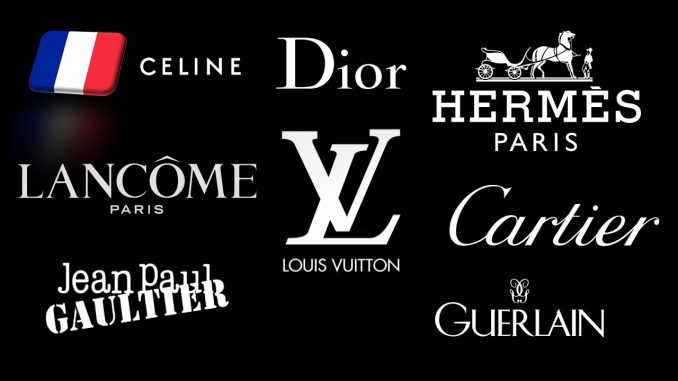
PARIS — Call it the beauty CEO shuffle.
Since the start of this year especially, a plethora of top-level executive changes have taken place.
L’Occitane Group, Avon Products Inc., Biologique Recherche, L:a Bruket, Susanne Kaufmann, Fresh and Orveon are among the cavalcade of companies — of all types: small to large, public to private, in every product category — to name new chief executive officers.
Olaplex, Amika, Avon Products Inc., Beautycounter, Eighth Day, Fresh, Orveon, Harklinikken and Fekkai are among others to have recent C-suite recruits, too.
A confluence of phenomena led up to these appointments.
“Beauty is an incredibly dynamic category, and with the scope of change that companies and brands need to keep up with, sometimes shifts in leadership can help support brands as they evolve to align with that,” said Sasha Radic, managing director at Jefferies.

The beauty market is also highly competitive. “And it’s only gotten more competitive over the last three or four years,” said John Long, North America retail sector leader and senior client partner at Korn Ferry.
The market saturation makes it harder for beauty-makers to have truly differentiated propositions.
“Just that level of competition creates a challenge for any CEO to not only maintain their market share, but to grow their business — and the pie is only growing so much,” Long said. “So, obviously, you need to be well-positioned in the future.”
He described 2023 and 2024 as “reset years.” “They are years when companies are [asking]: ‘Do we have the right leader for the business, given the mandates that we want them to drive going forward?’” Long said. “Certainly through COVID-19, there was a tendency not to do too much that would proactively disrupt management teams.”
Coming out of the coronavirus pandemic, which for many consumer-focused companies was a really strong period, boards and investors are looking for gains.
“Last year generally in retail was fairly lackluster,” Long said. “There was growth, but when you take out inflation, for the most part, growth was muted. So as we head into 2024, the focus of investors is around growth.”
Since there was less M&A activity as COVID-19 unfurled, that is now ramping up, as well, especially for private equity in the beauty space.
“We are expecting to see more transactions in 2024 and 2025 than we have seen over the last year or two,” Long said.
Anne Raphaël, managing partner at Boyden, noted private equity is expected to pick up investment momentum in the beauty space in the near term.
“Beauty has always been — and is increasingly — a very good business to invest in if you have the right brand and the right team,” she said.
It remains key to continually transform the business, with innovations such as product introductions and retail evolutions, including services.
“As a job function, it’s incredibly complex as a CEO,” said Long, adding that if investors aren’t seeing growth in a beauty business this year or last, they could be looking to make executive changes.
“Another thing to think about is the skill set that you needed as a CEO to get through the disruption that was COVID-19 isn’t necessarily the same skill set that you need now to grow the business,” he said. “It could be, you could succeed. It’s just some CEOs aren’t going to be as equipped to deliver on a growth mandate as others.”
A few CEOs have felt they are ready to move on post-COVID-19, as it was such an intense period. The health crisis caused changes for people personally as well as for businesses and how brands interact with consumers.
“That is reflected in shifts in leadership, in shifts in management and the dynamic needs in leading a beauty brand today,” Radic said. “All of that is coming together and being shown in a changing landscape of brand leadership, as well.
“Every situation is specific to the company,” she continued. “The reason behind one brand’s shift in management is not the same as it is for another.”
“They all have a different explanation and justification,” agreed Joël Palix, founder of boutique consultancy Palix Unlimited.
CEO changes are nothing new to the beauty industry.
“It’s often been the case as brands evolve that they’ve brought in leaders,” Radic said. “Usually, the leaders that you have from early stages to slightly larger scale are not the same leaders that you have when you’ve scaled it from an early stage to a significantly larger company. Also, sometimes people just retire.”
“Sometimes it’s more an evolution in the organization — where you move from founder to CEO,” Palix continued.
That’s the case, for example, at Biologique Recherche, Harklinikken, Fekkai and Eighth Day, with Jean-Guillaume Trottier, Stuart Miller, Tennille Kopiasz and Savannah Sachs, respectively, arriving to take the reins.
In some instances, when the founders remain, the CEOship is a new type of role, explained Palix.
Other times, a brand’s ownership changes, and that can result in a new CEO appointment, like at The Body Shop. Some groups, such as Amika and Avon, have promoted internal executives — Chelsea Riggs and Kristof Neirynck.
Gregg Renfrew returned as CEO at Beautycounter, the brand she founded in 2013 and left one year ago.
Amanda Baldwin succeeded JuE Wong at the beleaguered hair care brand Olaplex, with investors believing a management change to be necessary for a brand turnaround.
Meanwhile, Orveon, the Advent International-owned parent company of BareMinerals, Buxom and Laura Mercier, named Neela Montgomery to the CEO role.
As the beauty market shifted over the last two years, companies’ needs have reflected that. Still, some tenants remain intact. A beauty brand’s success involves its DNA, fundamentals, products, scale and scalability, one source said.
The first two elements are key as a brand grows net sales up to 5 million euros, and from 5 million euros to 15 million euros. (Many brands today have reached the 5-million-euro-to-10-million-euro sales threshold.) However, it’s another story altogether to scale from 15 million euros to 40 million euros or 50 million euros.
The CEO who grows a beauty business up to 15 million euros does not necessarily have all the expertise to take the brand to the next step and level, especially in the current challenging environment.
“[For a beauty CEO], you need to have a lot of expertise in different things,” said an industry source. “A lot has changed in the past 24 months. There’s massively increased competition post-COVID-19; we’ve seen a lot of brands emerge. It’s a very crowded market right now.”
Further brands that were purely direct-to-consumer focused have less of an edge than they did during the pandemic, since others have filled the gap with their DTC approach.
Some believe it is the end of the DTC-led playbook. For the last five to 10 years, there was a crystallization of what the playbook was to grow, which was around performance marketing-led, digital marketing-led acquisition of customers, and having paid media drive a lot of that conversion.
Unit economics and media cost don’t sustain that playbook anymore, so there’s a shift to brand marketing in the traditional sense of the term. That’s where a CEO’s experience comes into play, including in omnichannel communication and retail distribution channels, as the role of wholesale has returned.
Not all brand leaders have been agile enough to shift gears or were too married to one vision, some industry sources believe.
A CEO’s mindset is important. “They need to have a clear openness to all the new trends and to change,” said Edouard Thoumyre, managing partner at Accur Recruiting Services. He also noted how beauty is becoming more closely linked today to the hospitality industry and the experience that provides.
Plus, there’s a challenging microeconomic environment, with difficulties in Asia and travel retail, for examples.
“All of this makes scale even more important, and that means you need to have a strong omnichannel and international expertise, and a very strong institution of marketing and business strategy,” the industry source said.
Therefore, in order to build a sustainable beauty business that gets to the 40-million-euro-to-50 million-euro sales threshold — when the strategics become interested in possibly acquiring brands at a high valuation, like 5-times sales — it is key to have an age-old business model, be strong in multiple retail channels and geographies, and have powerful marketing strategy execution.
Numerous newly named CEOs in such companies as Biologique Recherche, L:a Bruket and Susanne Kaufmann are coming from large groups, in which they have successfully grown brands at companies such as the Estée Lauder Cos.
Raphaël noted they all have an international profile and strategic vision, while being able to maintain a healthy mix with creativity, specificity, brand DNA and the right level of scaling up.
Ada Lien, who was named CEO of Fresh at LVMH Moët Hennessy Louis Vuitton, is another Lauder alumna.
Executives being recruited from large groups also tend to have a strong entrepreneurial lens for execution and marketing strategy, alongside rigorous training, according to the industry source.
Further, some such executives have been attracted by the potential of joining a much smaller brand and being part of the story of scaling the business, possibly with a potential ultimate sale, the industry source continued.
“In many of the recent appointments…people had very strong international sales backgrounds,” Thoumyre said.
Laurent Marteau, recently named CEO and managing director of L’Occitane Group, is among those. He was formerly at La Prairie Group as vice president for global travel retail and special channels, and a member of the board of directors, then became vice president for Europe, the Americas, Middle East and Africa.
“A good CEO is not an easy person to find in beauty,” Palix said. “Beauty requires people to have soft skills, but also hard skills because you need to manage the business and deliver.
“It’s almost like managing various types of businesses, because you have products on one side, the retail and services. You need to be agile between the three — and be comfortable with digital and technology,” he added. “It takes a lot of skills.”

